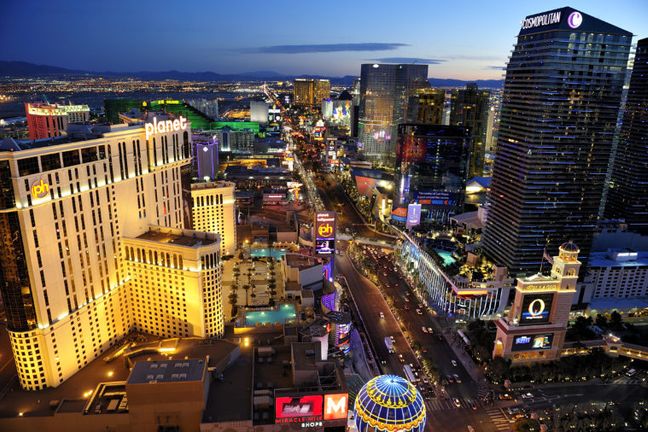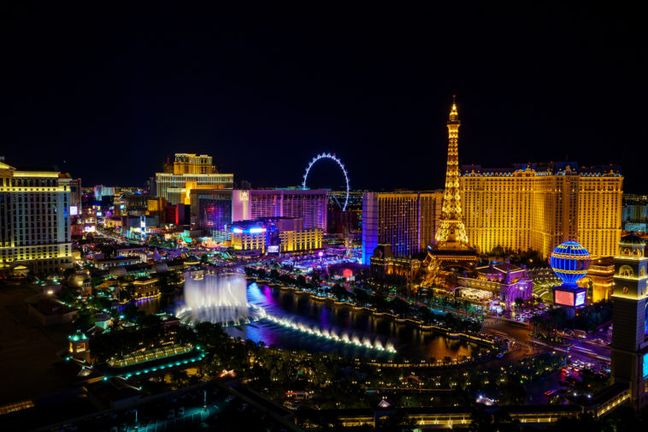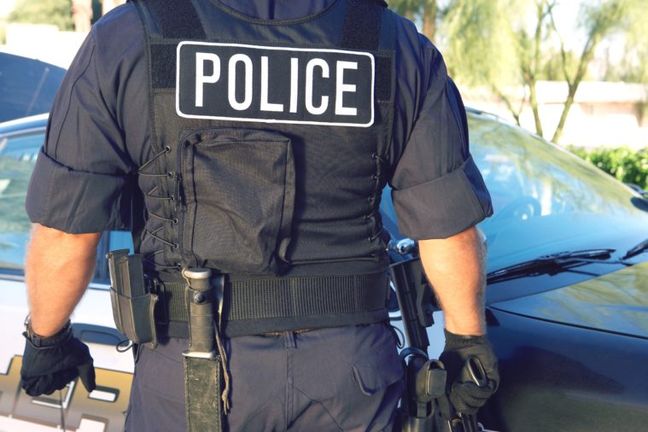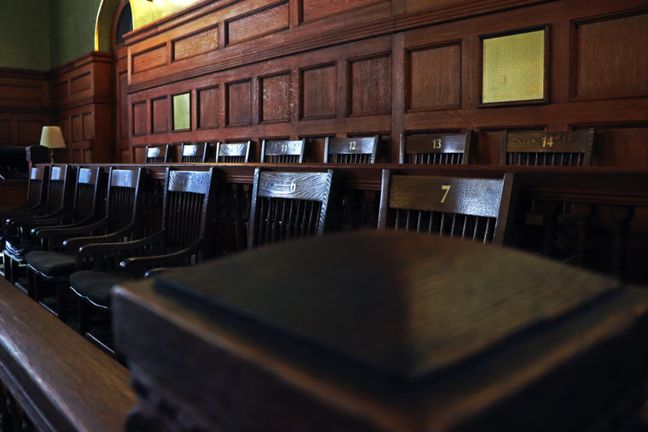Fitzgerald v. Mobile Billboards, LLC, 134 Nev. Adv. Op. 30 (May 3, 2018).
Nevada has long recognized a common law privilege against prosecution for statements made during a judicial or quasi-judicial proceeding. This privilege protects parties and witnesses from lawsuits for defamation based on statements related to the issues in the proceedings or anticipated proceedings, even if the statements were made with malicious intent or were knowingly false. The policy reason for this is “the public interest in having people speak freely outweighs the risk individuals will occasionally abuse the privilege by making false and malicious statements.” See Circus Circus Hotels, Inc. v. Witherspoon, 99 Nev. 56, 61, 657 P.2d 101, 104 (1983).
However, the absolute privilege against prosecution only applies as long as the defamatory communication is made to someone involved in the judicial/quasi-judicial proceedings or the anticipated proceedings or who is “significantly interested” in the litigation. Nevada, like most other states, does not consider the media as “significantly interested” because statements to the media “do little, if anything, to promote the truth finding process in a judicial proceeding . . . . [They] do not generally encourage open and honest discussion between the parties and their counsel in order to resolve disputes; indeed, such statements often do just the opposite.”. See Jacobs v. Adelson, 325 P.3d 1282, 1286 (Nev. 2014) (citing Pratt v. Nelson, 2007 UT 41, 164 P.3d 366, 381 (Utah 2007)).
Predictably, the “absolute” privilege is not absolute if a statute implicitly or explicitly supersedes this common law rule. In the recent case of Fitzgerald v. Mobile Billboards, LLC, the Nevada Supreme Court was tasked with determining whether a certain workers’ compensation law either modified or negated the absolute privilege against prosecution for defamatory statements in workers compensation proceedings. Mr. Fitzgerald was an employee of Mobile Billboards, LLC when he was injured and required medical treatment. A workers compensation claim was opened and Mr. Fitzgerald received medical treatment for his injuries.
Mobile Billboards expressed concern to its workers compensation insurance carrier Mr. Fitzgerald might be abusing prescription drugs. The carrier subsequently notified Mr. Fitzgerald’s treating physician of this who then confronted him with Mobile Billboards concern. Mr. Fitzgerald denied the abuse and filed a complaint for defamation against his employer.
In response, Mobile Billboards filed a motion to dismiss, arguing it was immune based on the privilege against prosecution for defamatory statements during a quasi-judicial proceeding, such as workers compensation claims. The district court granted Mobile Billboards’motion so Mr. Fitzgerald appealed.
The Appeal
On appeal, Mr. Fitzgerald argued NRS modified the absolute privilege by excluding from protection malicious statements. The statute reads:
No person is subject to any criminal penalty or civil liability for libel, slander or any similar cause of action in tort if the person, without malice, discloses information relating to a violation of any of the provisions of NRS 616D.200, 616D.220, 616D.240, 616D.300, 616D.310 or 616D.350 to 616D.440, inclusive, or any fraud in the administration of this chapter or chapter 616A, 616B, 616C or 617 of NRS or in the provision of benefits for industrial insurance.
Mr. Fitzgerald argued this statute applies because his employer was claiming he was defrauding the system by trying to obtain pain killers he did not really need. The Nevada Supreme Court agreed. The Court held:
NRS 616D.020 provides a conditional privilege because it requires that the statement was made without malice… Consequently, it appears that the Legislature did not believe that, in the context of a workers’ compensation claim, speaking freely about a person’s actual or perceived violation of NRS 616D.300 outweighed the risks of statements made with malicious intent.
The Court concluded the language of the statute was in conflict with the common law privilege because the common law also protected malicious statements; therefore, “the common law absolute privilege has been abrogated” by NRS 616D.020 in the case of workers compensation claims. Mr. Fitzgerald’s’ case was then remanded to the district court to determine whether Mobile Billboards’ statements were malicious, which would allow the defamation case to proceed.
Significance
The Nevada Supreme Court’s reading of NRS 616D.020 was straightforward. The legislature’s addition of the “without malice” language made it clear a party cannot invoke the privilege against prosecution in certain workers’ compensation cases when statements were made maliciously. This puts employers on notice to be more mindful of expressing their opinions about an injured worker involved in workers’ compensation cases.
Regardless, proving an employer’s statement was made with malice is likely a difficult hurdle to overcome in most cases. Unfortunately, determining whether a statement was made with malicious intent is very fact intensive. So, it may be more difficult in certain workers’ compensation-related cases to extract employers from a defamation claim through summary judgment.

 Author: Christopher Lund
Author: Christopher Lund
 Cannabis Workers Allege Quota to Trim 4 Pounds a Day Violates the California Labor Code
Cannabis Workers Allege Quota to Trim 4 Pounds a Day Violates the California Labor Code
 The Ninth Circuit Reminds Us: Every Word Matters
The Ninth Circuit Reminds Us: Every Word Matters
 NO WAY, PRO SE! The Consequences of Abusing the Judicial System as a Pro Se Litigant in Colorado
NO WAY, PRO SE! The Consequences of Abusing the Judicial System as a Pro Se Litigant in Colorado
 Victim of Financial Mismanagement or Unlawful Retaliation? New Jersey City University Program Founder Claims School Retaliated After Reporting Alleged Sexual Harassment
Victim of Financial Mismanagement or Unlawful Retaliation? New Jersey City University Program Founder Claims School Retaliated After Reporting Alleged Sexual Harassment
 “Real Housewives” Gets a Reality Check
“Real Housewives” Gets a Reality Check
 Missing a Chapter: Insufficiency of Expert Deposition Testimony in Medical Malpractice Litigation
Missing a Chapter: Insufficiency of Expert Deposition Testimony in Medical Malpractice Litigation
 Crash Course: Why Summary Judgment Misses the Mark in Illinois Multi-Cause Limousine Crash Collision
Crash Course: Why Summary Judgment Misses the Mark in Illinois Multi-Cause Limousine Crash Collision
 Bitter Truths: Lead, Cadmium, and Defective Pleadings in California Chocolate Class Action
Bitter Truths: Lead, Cadmium, and Defective Pleadings in California Chocolate Class Action
 The Law of Unintended Consequences: Including Insurance Brokers in Litigation Strategy Communication May Waive the Attorney-Client Privilege
The Law of Unintended Consequences: Including Insurance Brokers in Litigation Strategy Communication May Waive the Attorney-Client Privilege
 Federal Judge Throws Out Portion of Coverage Lawsuit in Nevada
Federal Judge Throws Out Portion of Coverage Lawsuit in Nevada
 Defenses Raised in an Answer Can Be Waived if Not Timely Reaffirmed in Discovery
Defenses Raised in an Answer Can Be Waived if Not Timely Reaffirmed in Discovery
 Nevada Court of Appeals Refuses to Define Breach of the Peace for Self-Help Repossession
Nevada Court of Appeals Refuses to Define Breach of the Peace for Self-Help Repossession
 Defendants Entitled to Attorney Fees as Prevailing Party in Voluntary Dismissal Cases Under Certain Circumstances
Defendants Entitled to Attorney Fees as Prevailing Party in Voluntary Dismissal Cases Under Certain Circumstances
 Nevada Limits Access to Police Body Camera Footage
Nevada Limits Access to Police Body Camera Footage
 Nevada Clarifies Exceptions to the American Rule of Attorney Fees
Nevada Clarifies Exceptions to the American Rule of Attorney Fees
 Actual Notice and Mailing Checks in Nevada
Actual Notice and Mailing Checks in Nevada
 Jury Demand within Complaint is Insufficient in Nevada
Jury Demand within Complaint is Insufficient in Nevada